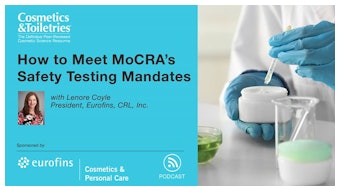Active ingredients have been popular for more than a decade, and new actives are continuously being identified, studied and promoted. Many of these are supported by good in vitro efficacy data, and there is an increasing number of ingredients for which also good in vivo efficacy evidence is available.
Based on this, one would expect to find many active cosmetic products in the marketplace, but unfortunately this is not the case. Assuming that the efficacy data provided is robust (i.e., that active ingredient has indeed its claimed cosmetic acticity), questions arise about the formulation development process that should assure that the efficacy of an active ingredient is transformed to an efficacious cosmetic product. Cosmetic formulators should therefore select their ingredients and manufacturing procedures in such a way that cosmetic efficacy is obtained. In other words, they should formulate for efficacy. In many cases, however, this does not happen.










